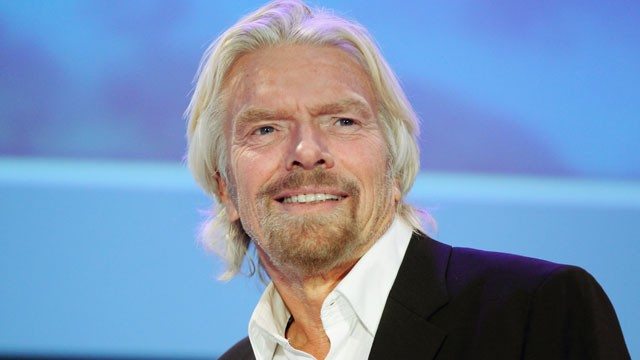Shares of Virgin Galactic, the space tourism venture founded by Richard Branson, are plunging after the British billionaire said he has no plans to invest more money in the company as he says it has “sufficient funds” already.
As of the 9 a.m. ET market open on Monday, Virgin Galactic stock was down 16%, trading at less than $2 per share.
Virgin Galactic has had a landmark year, flying its first customers to the edge of space after years of waiting. But the company has also been in a state of flux, having just laid off about 20% of its staff and working to introduce a new line of suborbital spacecraft that will supplant the vehicle it’s spent more than a decade developing.
Branson was quoted in an article posted by the Financial Times on Sunday as saying that his investment company — Virgin Group — hasn’t been in the best financial shape because of the pandemic.
But, he said, “Virgin Galactic has got $1 billion, or nearly,” he told the Times. “It should, I believe, have sufficient funds to do its job on its own.”
As of Virgin Galactic’s latest financial filing, posted in November, it had about $1.1 billion in cash and securities.
That’s enough funds to keep the company afloat until it debuts its new, larger line of rocket-powered planes — called Delta — that can fly wealthy thrill seekers and other paying customers to the edge of space. The new line of spacecraft is expected to debut in 2026, according to a Virgin Galactic news release.
But the company also said in its financial filings that it had laid off about 185 workers, or about 18% of its employees, on November 7.
Branson had previously sold off a large chunk of his personal investment in Virgin Galactic, ditching about $1 billion worth of stock between 2020 and 2021. But Virgin Group, an investment group that functions mostly as a manager of Branson’s personal investments, remains one of Virgin Galactic’s biggest shareholders, the company confirmed.
After Branson himself joined one of the first crewed flights to space aboard the company’s rocket-powered space plane, dubbed the VSS Unity, in 2021 — Virgin Galactic kicked off regular commercial service in 2023.
So far this year, the company has launched six groups of passengers to the edge of space, including test pilots, paying customers, honorary guests and Virgin Galactic employees.
But in its November financial report, the company said it would slow down its cadence and start sending customers to space on VSS Unity quarterly rather than once per month.
The next VSS Unity mission — Galactic 06 — is slated for January 2024.
But later next year, the company plans to halt flights of VSS Unity altogether as it works to ready its new line of Delta spaceplanes, according to Virgin Galactic CEO Michael Colglazier’s comments to investors in November.
Branson added in his comments to the Financial Times that he remains excited about Virgin Galactic and noted the company has “really proved itself and the technology.”

